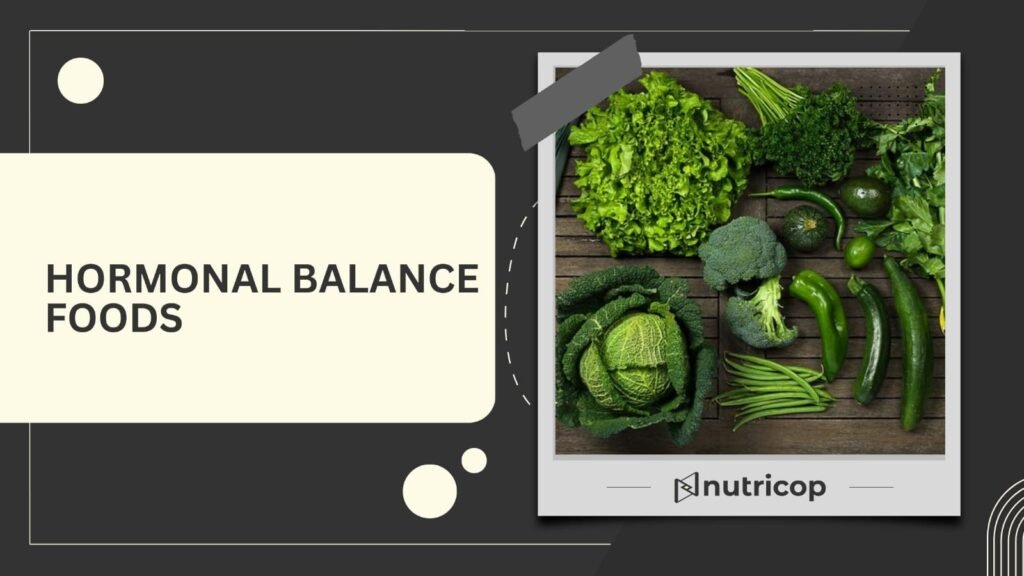The Benefits of Nutrition on Mental Health: How Food Shapes You
While most of us focus on how nutrition affects our physical health, we often overlook its profound impact on our mental well-being. Did you know that what you eat can influence your mood, stress levels, and even your risk of mental health disorders? In this blog, we’ll explore the fascinating connection between nutrition and mental health, backed by science, and provide practical tips to help you nourish your mind.
The Mind-Gut Connection: How Nutrition Affects Mental Health
The mind-gut connection is a fascinating and complex relationship between our digestive system and mental health, driven by the gut-brain axis. The gut is often referred to as the “second brain” because it contains millions of neurons that communicate with the brain through the vagus nerve and neurotransmitters like serotonin, nearly 90% of which is produced in the gut. Nutrition plays a crucial role in this connection, as the food we consume directly affects gut microbiota, inflammation levels, and brain function. A diet rich in whole foods, fiber, lean proteins, and healthy fats fosters a diverse and balanced gut microbiome, which has been linked to lower levels of stress, anxiety, and depression.
On the other hand, processed foods, excessive sugar, and unhealthy fats can disrupt gut bacteria, leading to inflammation and the production of neurotoxins that impair cognitive function and mood regulation. Adopting a mindful eating approach that prioritizes nutrient-dense foods not only enhances digestion but also promotes mental clarity, emotional stability, and overall psychological resilience. According to Harvard Health, the field of nutritional psychiatry explores how food impacts mood and mental health. By understanding and nurturing the mind-gut connection, we can harness the power of nutrition to support both our physical and mental health.
Key Nutrients for Mental Health
Let’s break down the essential nutrients that play a crucial role in maintaining and improving mental health:
-
Omega-3 Fatty Acids
Omega-3 fatty acids, primarily found in fatty fish like salmon, walnuts, chia seeds, and flaxseeds, are essential for brain health. They help build and repair brain cells and support neurotransmitter function. Studies show that omega-3s reduce inflammation in the brain and have antidepressant effects, making them beneficial for managing conditions like depression and anxiety. Regular intake of these healthy fats is linked to improved cognitive function, memory, and emotional stability. -
B Vitamins (B6, B9, B12)
B vitamins play a crucial role in neurotransmitter production, particularly serotonin and dopamine, which regulate mood and energy levels. Vitamin B6 aids in serotonin synthesis, folate (B9) supports cognitive function, and B12 is essential for nerve health. Deficiency in these vitamins has been linked to depression, brain fog, and fatigue. Foods like leafy greens, eggs, dairy, meat, and whole grains are excellent sources of B vitamins and should be incorporated into a balanced diet. -
Magnesium
Magnesium, often called the “relaxation mineral,” helps regulate stress hormones and supports neurotransmitter function. It promotes relaxation, reduces anxiety, and enhances sleep quality. Magnesium also plays a role in energy production and nerve function. Low levels have been associated with higher stress, mood swings, and irritability. Good sources include nuts, seeds, whole grains, dark chocolate, and leafy greens. Including magnesium-rich foods in the diet can help manage stress and improve overall mental well-being. -
Zinc
Zinc is an essential mineral that supports brain function, neuroplasticity, and immune health. It plays a role in neurotransmitter activity and helps reduce inflammation in the brain, which is linked to depression and anxiety. Studies suggest that low zinc levels are associated with mood disorders and impaired cognitive function. Foods like meat, shellfish, legumes, nuts, and seeds are rich in zinc. Including zinc-rich foods in the diet can enhance brain function, memory, and emotional resilience. -
Vitamin D
Known as the “sunshine vitamin,” vitamin D is crucial for mood regulation and mental health. It plays a role in serotonin production, and deficiency has been linked to depression, seasonal affective disorder (SAD), and cognitive decline. Since many people do not get enough sunlight exposure, vitamin D deficiency is common. Foods like fatty fish, egg yolks, and fortified dairy products can help, but supplementation may be necessary for those with limited sun exposure. Maintaining optimal vitamin D levels can significantly improve mood and overall mental well-being. -
Antioxidants (Vitamin C & E)
Antioxidants help protect brain cells from oxidative stress, which contributes to mental fatigue and neurodegenerative diseases. Vitamin C, found in citrus fruits, bell peppers, and berries, supports the production of neurotransmitters and reduces stress-related damage. Vitamin E, present in nuts, seeds, and leafy greens, protects brain cells from aging and cognitive decline. Including antioxidant-rich foods in the diet helps improve brain function, reduce stress, and support emotional well-being. -
Iron
Iron is essential for oxygen transport in the blood and brain function. Low iron levels can cause fatigue, brain fog, and mood swings, often leading to symptoms of depression. Women, especially, are at a higher risk of iron deficiency. Iron-rich foods include red meat, spinach, lentils, tofu, and fortified cereals. Ensuring adequate iron intake improves energy levels, concentration, and emotional stability. -
Amino Acids (Tryptophan)
Tryptophan is an amino acid necessary for serotonin production, the neurotransmitter responsible for mood regulation and relaxation. It helps reduce stress, promote better sleep, and enhance emotional well-being. Foods rich in tryptophan include turkey, eggs, dairy, nuts, and seeds. Consuming enough protein-rich foods that contain tryptophan can naturally boost serotonin levels and support mental health. -
Probiotics & Prebiotics
Gut health plays a significant role in mental well-being due to the gut-brain connection. Probiotics (found in yogurt, kimchi, and kefir) introduce beneficial bacteria, while prebiotics (found in garlic, onions, and bananas) feed these good bacteria. A balanced gut microbiome supports neurotransmitter production, reduces inflammation, and enhances mood stability. Including probiotics and prebiotics in the diet can help improve digestion, lower stress levels, and promote emotional balance.
Eating a nutrient-rich diet with these essential vitamins and minerals can significantly improve mental clarity, emotional well-being, and overall brain function
The Science Behind Food and Mood
The connection between food and mood is deeply rooted in science, primarily through the gut-brain axis, neurotransmitter activity, and inflammation regulation. The foods we consume directly impact brain chemistry by influencing the production of neurotransmitters like serotonin, dopamine, and GABA, which regulate emotions, stress, and cognitive function. For instance, complex carbohydrates found in whole grains help increase serotonin levels, promoting feelings of relaxation and happiness, while protein-rich foods provide amino acids like tryptophan, essential for serotonin synthesis.
Omega-3 fatty acids, found in fatty fish and nuts, support brain function and reduce inflammation, which is often linked to depression and anxiety. Additionally, gut health plays a significant role in mental well-being, as nearly 90% of serotonin is produced in the gut. Scientific research continuously highlights that a nutrient-dense, balanced diet is not only essential for physical health but also plays a crucial role in emotional stability, stress management, and overall mental well-being.
Common Mental Health Issues Linked to Poor Nutrition
-
Depression
Poor nutrition can contribute to depression by disrupting neurotransmitter production and increasing inflammation. Diets high in processed foods, trans fats, and sugar can lead to blood sugar imbalances and chronic inflammation, which negatively affect brain function. Nutrient deficiencies, especially in omega-3 fatty acids, B vitamins, and vitamin D, have been linked to increased risk of depression. A well-balanced diet rich in whole foods, healthy fats, and lean proteins can help regulate mood and reduce depressive symptoms. -
Anxiety
Anxiety disorders can be worsened by poor diet choices, particularly those high in caffeine, sugar, and processed foods. Low levels of magnesium, B vitamins, and omega-3 fatty acids have been associated with heightened stress and nervousness. Additionally, gut health plays a role in anxiety, as an imbalanced gut microbiome can affect neurotransmitter function. Eating fiber-rich foods, probiotics, and magnesium-rich foods like nuts and leafy greens can help manage anxiety symptoms. -
Brain Fog and Poor Concentration
Lack of essential nutrients, especially iron, B vitamins, and omega-3s, can lead to brain fog, difficulty concentrating, and reduced cognitive function. High sugar intake and processed foods can cause fluctuations in blood sugar levels, leading to mental fatigue. A diet rich in protein, complex carbohydrates, and antioxidant-rich foods like berries and leafy greens can enhance focus and mental clarity. -
Mood Swings
An imbalanced diet can lead to frequent mood swings due to fluctuating blood sugar levels and inadequate neurotransmitter production. Consuming excessive refined carbohydrates and sugary foods causes rapid spikes and crashes in blood sugar, leading to irritability, fatigue, and unstable emotions. Ensuring a diet with healthy fats, lean proteins, and fiber helps stabilize blood sugar and improve mood stability. -
Sleep Disorders (Insomnia)
Poor nutrition can interfere with sleep quality, leading to insomnia and restlessness. Caffeine, sugar, and alcohol consumption close to bedtime disrupt melatonin production, the hormone responsible for sleep. Additionally, deficiencies in magnesium and tryptophan can make it difficult to relax. Eating magnesium-rich foods like nuts and dark chocolate and tryptophan-containing foods like dairy and turkey can promote better sleep. -
Stress and Increased Cortisol Levels
A poor diet can lead to chronic stress by elevating cortisol, the stress hormone. Processed foods, excessive caffeine, and sugar increase inflammation and oxidative stress, making it harder for the body to manage stress. Nutrients like vitamin C, omega-3 fatty acids, and magnesium help regulate stress responses and support the nervous system. A diet rich in antioxidants, healthy fats, and whole grains can help reduce stress levels naturally. -
Cognitive Decline and Memory Issues
Nutrient deficiencies, especially in omega-3 fatty acids, B vitamins, and antioxidants, can increase the risk of cognitive decline and memory loss. High levels of processed foods and unhealthy fats contribute to oxidative stress, damaging brain cells over time. Including brain-boosting foods like fatty fish, nuts, and green leafy vegetables helps protect against cognitive decline and supports long-term brain health. -
Irritability and Aggression
Nutritional imbalances, especially low blood sugar due to irregular eating patterns or excessive sugar intake, can lead to increased irritability and aggression. Deficiencies in essential nutrients like zinc and magnesium also contribute to poor impulse control and mood instability. Eating balanced meals with protein, fiber, and healthy fats helps maintain steady energy levels and emotional balance.
Practical Tips to Improve Mental Health Through Nutrition
- Eat a Rainbow
Incorporate a variety of colorful fruits and vegetables into your diet. Each color represents different nutrients that benefit your brain. - Choose Whole Foods
Opt for whole grains, lean proteins, and healthy fats instead of processed foods. - Stay Hydrated
Dehydration can affect your mood and cognitive function. Aim for at least 8 glasses of water a day. - Limit Sugar and Caffeine
Too much sugar and caffeine can lead to energy crashes and increased anxiety. - Plan Balanced Meals
At Nutricop, we provide personalized diet plans that ensure you’re getting all the nutrients your brain needs to thrive.
Final Thoughts
Nutrition is a powerful tool for improving mental health. By making small, mindful changes to your diet, you can significantly impact your mood, stress levels, and overall well-being. Remember, a healthy mind starts with a healthy plate.
If you’re ready to take the first step toward better mental health, explore our diet plans and home workout services at Nutricop. Let’s work together to nourish your mind and body!
Stay tuned to Nutricop for expert nutrition guidance and personalized meal plans! Start your journey to a healthier, happier you today—get your custom meal plan now at Nutricop’s Diet Plans! Contact us.








